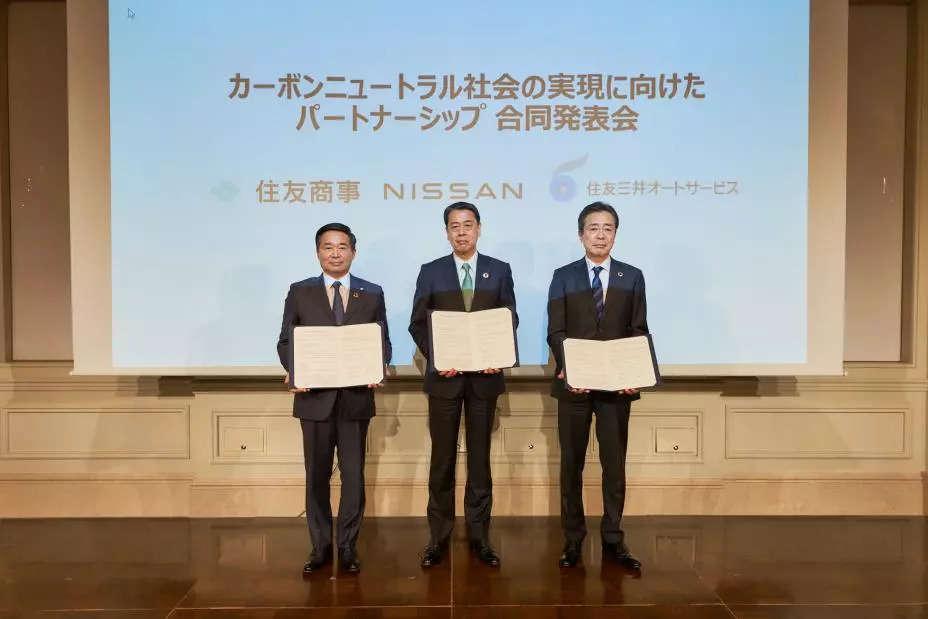
New Delhi: Nissan Motor Co., Ltd., Sumitomo Corporation and Sumitomo Mitsui Auto Service Company, Limited on Friday inked the Decarbonization Support Partnership for Local Governments, a partnership aimed to achieve carbon neutrality by 2050, the company said in a press release.
The three companies will support the decarbonization and optimization of local transportation methods by introducing EVs and constructing a car-sharing environment for residents, local businesses and facilities operated by local governments. Under the agreement, these companies will also promote the decarbonization of electric power by introducing electricity generated by renewable energy.
The purpose of the Decarbonization Support Partnership is to help local governments establish local production and consumption decarbonization communities. This will be accomplished by linking the local governments with the functions and knowledge of the three companies and focusing on mobility and energy.
“Nissan has been collaborating with more than 150 local governments and companies nationwide under its Blue Switch project, which uses EVs to solve regional issues. We are confident the conclusion of this partnership with Sumitomo Corp. and Sumitomo Mitsui Auto Service will provide strong support for evolving and deepening the Blue Switch project. We will combine the know-how of the three companies and work with local governments nationwide to achieve a carbon-neutral society,” Makoto Uchida, Representative Executive Officer, President and CEO, Nissan Motor Co., Ltd said.
Furthermore, effective regional energy management will be achieved by combining mobilities and energy. And a regional energy cycle will be established by strengthening resilience and introducing a platform for the future trading of renewable power. The three companies will also cooperate with local governments to decarbonize communities by developing solutions that match the characteristics of the region.
Today 492 local governments in Japan, with a combined population of approximately 110 million people, have declared they will join the 2050 Zero Carbon Cities initiative. The introduction and utilization of renewable energy by local governments not only contributes to decarbonization in those regions but also to strengthening resilience. Therefore, relevant ministries and agencies, led by the Ministry of the Environment, are supporting the initiative. One obstacle to achieving the 2050 Zero Carbon Cities initiative is a shortage in local governments of knowledge and personnel for formulating plans and introducing and utilizing renewable energy.
“Sumitomo Corporation established the Energy Innovation Initiative (EII) last April to contribute to a carbon-neutral society by establishing sustainable energy cycle and archiving decarbonization. A focus of the EII is to realize a global, local-oriented, local consumption decarbonization models,” says Masayuki Hyodo, Representative Director, President, and CEO, Sumitomo Corporation.
Sumitomo Mitsui Auto Service Company has been providing mobility services, mainly through our corporate car leasing business, to make transportation seamless for our customers.
Also Read:
